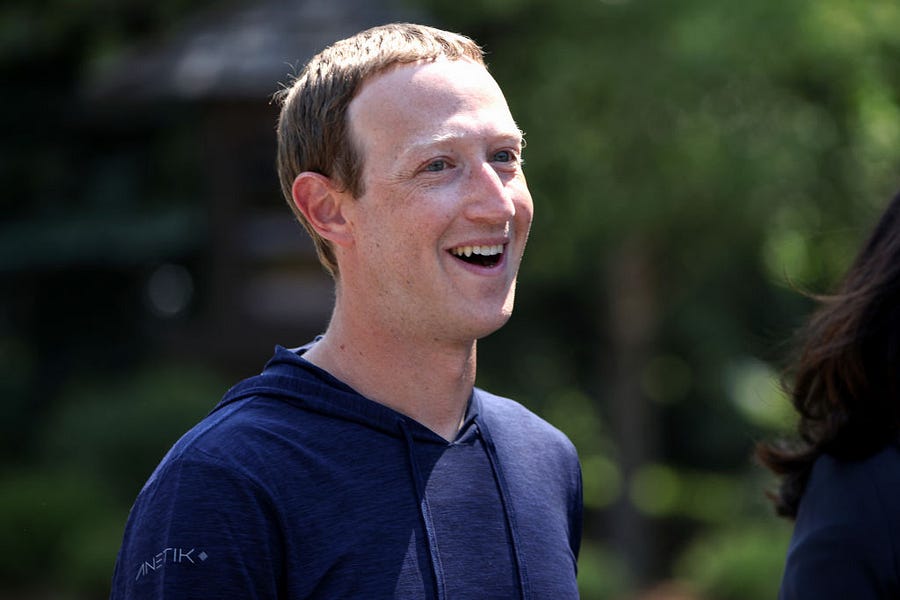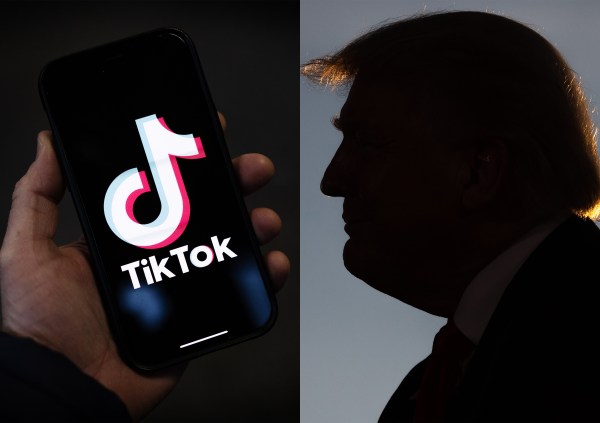Hey,
I have something really important to get to, but I figured I should start with this Facebook stuff.
Let me get the disclosures out of the way: We at The Dispatch are part of Facebook’s fact-checking consortium. We make some money from it and I think we do good work.
Second: I don’t use Facebook. I think I might still have a “fan” page somewhere; I’m honestly not sure. But if I do, I’m happy to tell Dispatch readers that I haven’t laid eyes on it in at least a decade and any recent articles shared there were posted by social media pros here at The Dispatch). (Wanna talk to me? My email is jonah@thedispatch.com, or you can just use the comments.)
So when Facebook shut down the other day, it affected me personally about as much as the closure of a vegan fondue truck in Portland. If you hadn’t told me about it, I wouldn’t have known.
Now, I don’t think Facebook is evil—you can chalk up my previous jokes about it being “Satan’s urinal” to poetic license. I think it does good things and bad things. Some of those are unique to Facebook, but others just go for social media generally. Personally, I think the whole phenomenon has been a net negative for society, but whatcha gonna do?
“Well,” you might say, “we could regulate it.” Which brings me to my point.
First, I have to say that I’m not a conspiracy theorist. (Our lizard people overlords think it’s very important that I maintain my credibility.) But I don’t trust this whole whistleblower drama. I just ranted about this on The Dispatch Podcast, but I feel I could have made my point better. I hadn’t seen Michael Brendan Dougherty’s argument before we recorded, but I’m glad to see I’m not alone. As MBD suggests, Frances Haugen, the Facebook whistleblower, seems like she’s being groomed for the Erin Brockovich Hollywood treatment.
I think a bunch of people conspired to tee up yesterday’s hearings. It was all so perfect. A huge and splashy expose in the Wall Street Journal, with a choreographed tease about her identity, followed by a big 60 Minutes reveal on the eve of the Senate hearings. That same night she launched a fairly elegant website that features her picture alongside this description: “Frances Haugen is an advocate for public oversight of social media.” You can sign up to get emails from her there.
As Eliana Johnson and others have noted, Haugen is being represented by Bill Burton, a former high-ranking comms flack from the Obama administration, and his consulting firm Bryson Gillete, formerly headed by current White House press secretary Jen Psaki. Burton sits on the board of something called the Center for Humane Technology, which is apparently a pain in Mark Zuckerberg’s nethers.
But here’s the thing: None of this is the conspiracy theorizing I referenced above.
The term “conspiracy theory” is kind of weird. It suggests some outlandish, or paranoid, explanation for an event. So in one sense it’s not even a theory. The people who peddle what we call conspiracy theories often claim they’re facts, not theories. Meanwhile, what do you call a theory about people conspiring to do something? I think Haugen’s roll out is probably a well-orchestrated media campaign.
But you know what? That’s okay. PR campaigns are features of political life, and they don’t become sinister just by being well-executed. The Wall Street Journal is an excellent paper, and I’d be shocked if its team didn’t do their due diligence on the documents Haugen provided.
No, the reason I said I don’t want to sound like a conspiracy theorist is because I’m tempted to offer some galaxy brain theorizing that really would be crazy. Maybe not Emerald Robinson crazy, but that’s a high bar. Still, there’s part of me that wants to say that Haugen is actually a Zuckerberg plant.
Here’s why.
Facebook has been begging Washington to regulate it for a while now. Last February, under the headline, “Big Tech Needs More Regulation,” Mark Zuckerberg himself penned an op-ed in the Financial Times arguing that “if we don’t create standards that people feel are legitimate, they won’t trust institutions or technology.” He added, “I believe good regulation may hurt Facebook’s business in the near term, but it will be better for everyone, including us, over the long term.”
He told Congress that it should mandate all sorts of artificial intelligence systems that would do the heavy lifting on content moderation. Of course, Facebook is one of the few platforms that could afford such systems. More on that in a moment.
Facebook has also been running ads pleading for Congress to regulate the internet. Although I don’t know if they run outside of Washington, D.C. (we get lots of TV ads here aimed at Congress).
So far, the push to get the regulation Zuckerberg wants hasn’t really gone anywhere because: A) Congress is broken, B) The left wants more censorship or “content moderation,” C) The right either wants less or it wants more, but on terms favorable to conservatives, and D) Figuring out how to regulate the internet is very hard.
So here comes Haugen. She’s smart, she’s effective, and she has exactly the message Democrats want.
Now, obviously, it’s not the message Facebook wants. But—and here’s the galaxy brain part—so what? If it gets the ball rolling on actual regulations, the odds are high that Facebook could influence the process so that it gets exactly what it wants at the end of it all. If you’re trying to seize a castle, you might have to ruin a perfectly good door with a battering ram. Also, some of your troops are going to catch arrows, rocks, and even hot tar. Ideally, you’d like to keep the door intact—and nobody wants to catch an arrow or hot tar—but if you can’t take the castle without smashing down the door, you gotta do what you gotta do.
Now, again, I don’t think this is actually what’s going on (though I still want full credit for being right if it turns out to be!). But I think I’m on firmer ground in predicting that Facebook will come out of this stronger and more entrenched than it went in.
The idea that big business—including Big Tech—hates regulation has never been true. At the end of the 19th century, the railroad magnates successfully petitioned the federal government to protect them from “cutthroat competition” and the hassles of rate wars. We have the Interstate Commerce Commission thanks to those allegedly rapacious free market capitalists and “robber barons.”
I could regale you with similar stories about everything from the steel and meat packing industries in the Progressive Era to movie chains during the New Deal.
Even Upton Sinclair—author of The Jungle—eventually admitted that the regulation he helped bring about benefited Big Meat. “The Federal inspection of meat was, historically, established at the packers’ request,” Sinclair wrote in 1906. “It is maintained and paid for by the people of the United States for the benefit of the packers.”
Zuckerberg wants regulations on terms favorable to Facebook, but it doesn’t strike me as far-fetched that he thinks a trillion-dollar company with 3 billion users worldwide and enough lawyers to cast a crowd scene from Ben Hur will be able to work the process to his benefit. One might even call such a theory “near-fetched.”
And even if the results aren’t fully to his liking, he will have the resources to adapt that smaller players wouldn’t. Lots of folks are comparing the push against Facebook to the push against Big Tobacco. There are lots of problems with the analogy. But the war on Big Tobacco is instructive in one way. Thanks to the settlement that came out of it, the big, established cigarette companies came out as protected incumbents, while the smaller ones were left struggling to compete and often harassed by the government in part to protect the revenues they got from the big signatories.
None of this is to argue that Facebook shouldn’t be regulated—though the devil is obviously in the details. It’s simply to note that the neat and tidy stories we tell ourselves about how the state and big business are in some kind of existential battle for control is usually wrong.
Okay, I said I wanted to get to something important, but I ended up going way too long here. So enough about Big Tech, big business, and Big Tobacco. Here’s my sidebar on Big Otter.







Please note that we at The Dispatch hold ourselves, our work, and our commenters to a higher standard than other places on the internet. We welcome comments that foster genuine debate or discussion—including comments critical of us or our work—but responses that include ad hominem attacks on fellow Dispatch members or are intended to stoke fear and anger may be moderated.
With your membership, you only have the ability to comment on The Morning Dispatch articles. Consider upgrading to join the conversation everywhere.